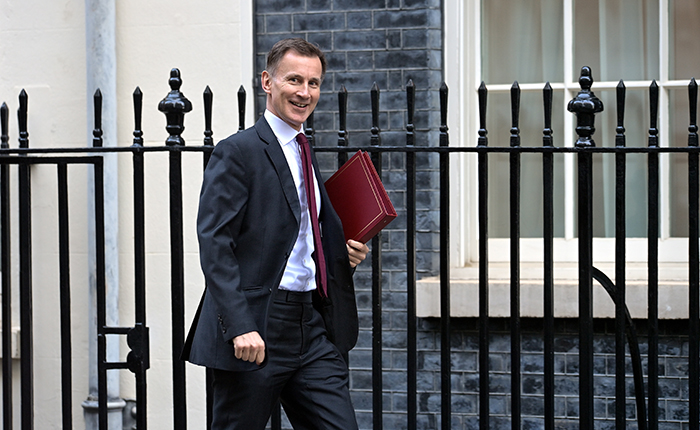
The government’s mortgage guarantee scheme accounts for just over 1.5% of all home loan completions since it was launched in 2021, according to official figures.
The plan, which mainly helps first-time buyers with 5% deposits to buy a home, has been used in 39,253 mortgage deals since it was introduced in April 2021 to the end of June, which represents 1.6% of all residential mortgage completions.
The mean value of properties purchased or remortgaged through the scheme to the end of June is £199,245, compared to an average UK house price of £287,546, according to Treasury data.
Under the scheme, the government offers lenders the financial guarantees they need to provide mortgages that cover the other 95%, subject to affordability checks, on a house worth up to £600,000.
Loans that qualify for the scheme are set at 4.5 times the income of the borrower.
The news comes after last week, Chancellor Jeremy Hunt extended the mortgage guarantee scheme by a further 18 months to close at the end of June 2025 as part of the Autumn Statement – a move that largely underwhelmed property professionals.
Quilter mortgage expert Karen Noye says: “Following the news last week that the government plans to extend the mortgage guarantee scheme until June 2025, new data shows that the scheme has provided only a moderate impact on the housing market since its launch on 19th April 2021.”
She points out that the scheme’s loan limit of 4.5 times the income of the borrower is a key factor in its underuse.
Noyce says: “For an average earner, this translates to a borrowing limit of just over £150,000, offering limited options in the housing market.
“Therefore, building a larger deposit or seeking financial help from family sources often becomes necessary to broaden their market choices.
“The extension of the scheme, though well-intentioned, may not significantly alter the current market dynamics.”
Noyce adds: “High loan-to-value ratios under this scheme place buyers at risk of negative equity, particularly if the housing market faces a significant and prolonged downturn.
“Those who purchased at the scheme’s average property value might find themselves in a precarious financial situation, burdened by negative equity and restricted mobility in the market.”
Last week, Nationwide Building Society director of mortgages and financial wellbeing Rachael Sinclair said: “We welcome all measures that can play a role in helping people buy their first property, including the mortgage guarantee scheme extension but we are disappointed that it continues to restrict qualifying loans to 4.5 times income as research shows that most homes remain unaffordable through the scheme.
“More needs to be done. That is why we continue to call on the government to commission an independent review into the first-time buyer market.
In June, the most recent month for which figures are available, the scheme was used in 749 completions, up 28% on the previous month, with the value of government loans at £25m (up 39% from May), set against the total value of the home loan at £171m (up 35%).



